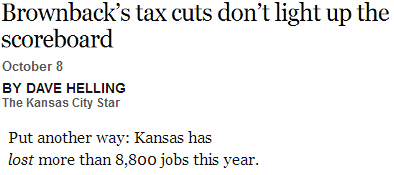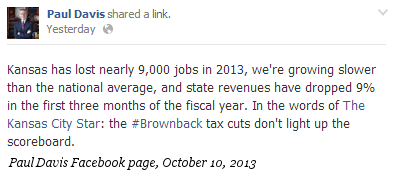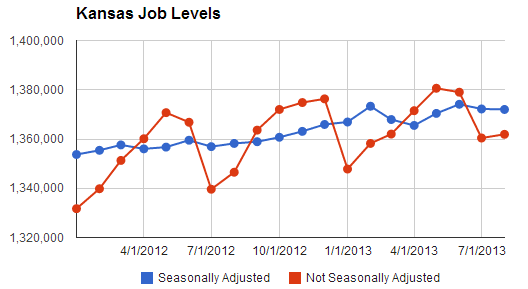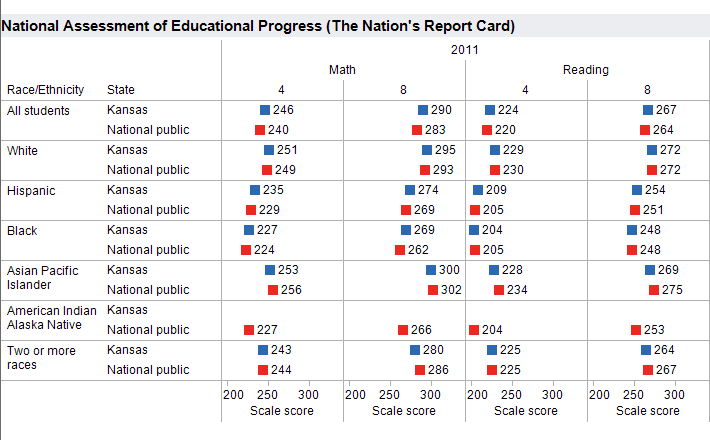Today the Wichita City Council decided to grant a forgivable loan of $48,000 to The Golf Warehouse. This subsidy was promoted by the city as necessary to properly incentivize the applicant company to expand its operations in Wichita rather than Indiana, where the company has other operations and had also received an offer of subsidy. For more information, see Forgivable loan a test for new Wichita City Council members.
In presenting the item to the council, Allen Bell, Wichita’s Director of Urban Development said the forgivable loan was a “deal-closing” device intended to “win a competition with other locations.”
Further discussion brought out the fact that companies often “test the waters,” asking for incentives from cities like Wichita as a location they might consider moving to, only to us that as leverage for getting more incentives back home. (Wichita has suffered at the hands of this ruse, most recently granting a large forgivable loan to a company when the city used as leverage says they did not have discussions with the company.)
Council Member Michael O’Donnell asked if there was another form of economic development that The Golf Warehouse could have received. Bell said that in this case there wasn’t, that IRB financing with accompanying tax abatements wasn’t available for this project. As he has in the past, Bell pointed to the lack of tools in the toolbox, or “arrows in our quiver” he said today.
When the CEO of the applicant company spoke to the council, it was easy to get the impression that this company — like the many other companies that plead for incentives and subsidy — feel that because of their past and pending investment in Wichita, they are entitled some form of incentive. When the company’s outside site selection consultant spoke, this sense of entitlement became explicit. She told how the company has made “significant investment and has employed a lot of people and kept a lot of families employed.” She said that instead of forgivable loan, this should be called an “act of goodwill.” She said the company has made a huge investment, never asking for incentives, and that the loan allows the company to continue making investment into the community.
She also said that the offer made by Indiana amounted to twice Wichita’s offer, on a per-job basis.
Citizens spoke against the forgivable loan. John Todd asked if this is the economic formula that has blessed our city and county with the wealth and prosperity we enjoy today.
Clinton Coen told the council that these incentives are a bargaining tool, allowing cities to blackmail each other.
Susan Estes asked a question that built on O’Donnell’s earlier remarks: Why would we see this forgivable loan as egregious? On the surface, we see jobs, which is good, she said. But the money to pay for this loan comes from other taxpayers, she said, and there are many companies that need help, citing the number of companies filing for bankruptcy and having tax liens filed against them. “Why I find it egregious is that we’re doing something that helps one company at a time. We really need to take an overall look at our tax policy and address the tax issue. We have one of the highest tax rates on the Plains, and that’s why we get in these situations where we have to compete. If we had a better competitive tax rate we could spare all of this.”
Of interest for the political theater was the vote of three new council members, based on statements they made regarding forgivable loans on the campaign trail (see Forgivable loan a test for new Wichita City Council members). In making the motion to accept staff recommendation of the forgivable loan, council member Pete Meitzner said of the loan: “It is an investment, incentive, whatever you want to call it. It is not a give-away.”
Meitzner and James Clendenin voted with all the veteran council members to approve the forgivable loan. Only O’Donnell voted consistent with how he campaigned.
Analysis
This item before the Wichita City Council today requires analysis from two levels.
First, the economics and public policy aspects of granting the forgivable loan are this: It is impossible to tell whether The Golf Warehouse would not expand in Wichita if the forgivable loan was not granted. The companies that apply for these subsidies and that cite competitive offers from other states and cities have, in some cases, multi-million dollar motives to make Wichita think they will move away, or not invest any more in Wichita. Most politicians are scared to death of being labeled “anti-job,” and therefore will vote for any measure that has the appearance of creating or saving jobs.
Particularly inappropriate is the attitude of many of these companies in that they deserve some sort of reward for investing in Wichita and creating jobs. First, companies that make investments do, in fact, deserve a reward. That reward is called profit, but it has to be earned in the marketplace, not granted by government fiat. When a company earns profits in free markets, we have convincing evidence that wealth is being created and capital has been wisely invested. Everyone — the investors certainly but also the customers and employees — is better off when companies profit through competition in free markets.
But when government steps in with free capital, as was the case today, markets are no longer free. The benefits of capitalism are no longer available and working for us. The distortion that government introduces interferes with market processes, and we can’t be sure if the profit and loss system that is so important is working. Companies, as we saw today, increasingly revert to what economists call rent seeking — profiting through government rather than by pleasing customers in market competition.
Entrepreneurship, of which Wichita has a proud tradition, is replaced by a check from city hall.
Wichita’s own Charles Koch explained the harm of government interventionism in his recent recent Wall Street Journal op-ed: “Government spending on business only aggravates the problem. Too many businesses have successfully lobbied for special favors and treatment by seeking mandates for their products, subsidies (in the form of cash payments from the government), and regulations or tariffs to keep more efficient competitors at bay. Crony capitalism is much easier than competing in an open market. But it erodes our overall standard of living and stifles entrepreneurs by rewarding the politically favored rather than those who provide what consumers want.”
A forgivable loan — despite Council Member Meitzner’s claim to the contrary — is a cash payment to business, which Mr. Koch warns against.
The focus on job creation is also a confounding factor that obscures the path to true wealth and prosperity for Wichita. When companies ask the city, county, and state for subsidy and incentive, they tout the number of jobs and the payroll that will be created. But jobs are a cost, not a benefit, to business and most firms do all they can to minimize their labor costs just as they seek to minimize all costs. For Wichita to prosper, we need to focus on productivity and wealth creation, not merely employment.
The actions of the city council today keep Wichita on its path of piecemeal economic development and growth. Movement to a system that embraces economic dynamism, as advocated by Dr. Art Hall and as part of Governor Sam Brownback’s economic development plan for Kansas, is delayed. Economic development in Wichita keeps its present status as a sort of public utility, subject to policy review from time to time, as was mentioned today by the city manager.
Politically, Wichitans learned today the value of promises or statements made by most candidates while campaigning. Most candidates’ promises along with $3.75 will get you a small cappuccino at Starbucks — if you don’t ask for whipped cream.
Particularly interesting is the inability of politicians to admit they were wrong, or that they made a mistake, or that they were simply uninformed or misinformed when they made a campaign promise or statement. It was refreshing to hear Republican presidential candidate Tim Pawlenty, when he was in Wichita a few weeks ago, forthrightly admit that he was wrong about his initial position on cap-and-trade energy policies. City council members Clendenin and Meitzner could not bring themselves to admit that their votes today were at odds with their statements made while campaigning. This lack of honesty is one of the reasons that citizens tune out politics, why they have such a cynical attitude towards politicians, and perhaps why voter turnout in city elections is so low.
As one young Wichitan said on her Facebook page after sharing video of the three new council members today, obviously referring to city council district 2’s Pete Meitzner: “How to use your mouth: 1. Campaign under the guise that you are a fiscal conservative. 2. Insert foot.”











